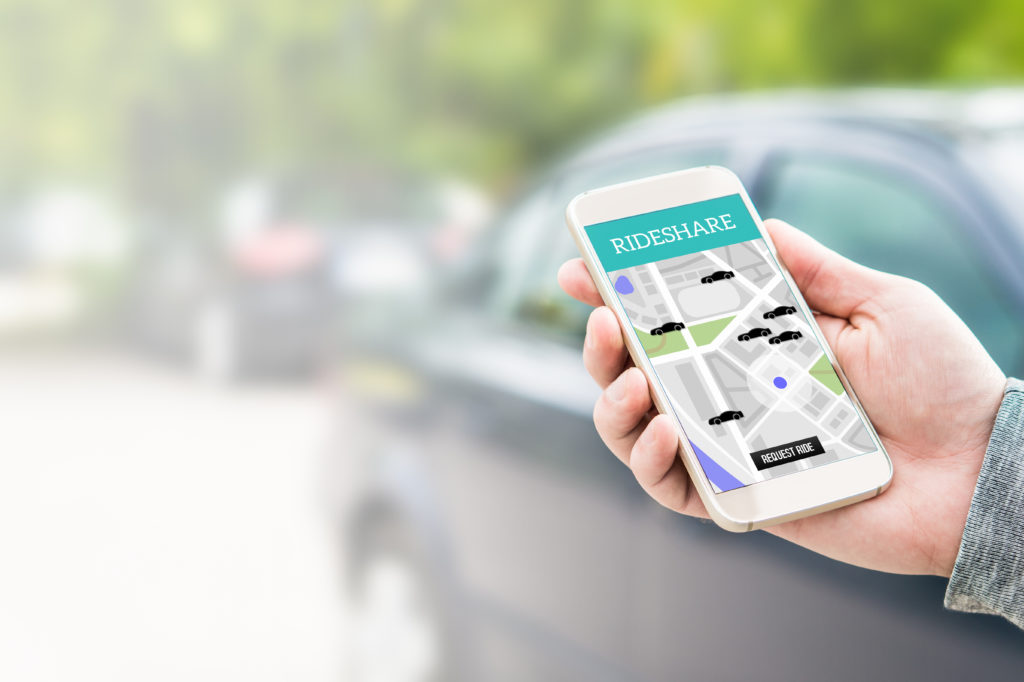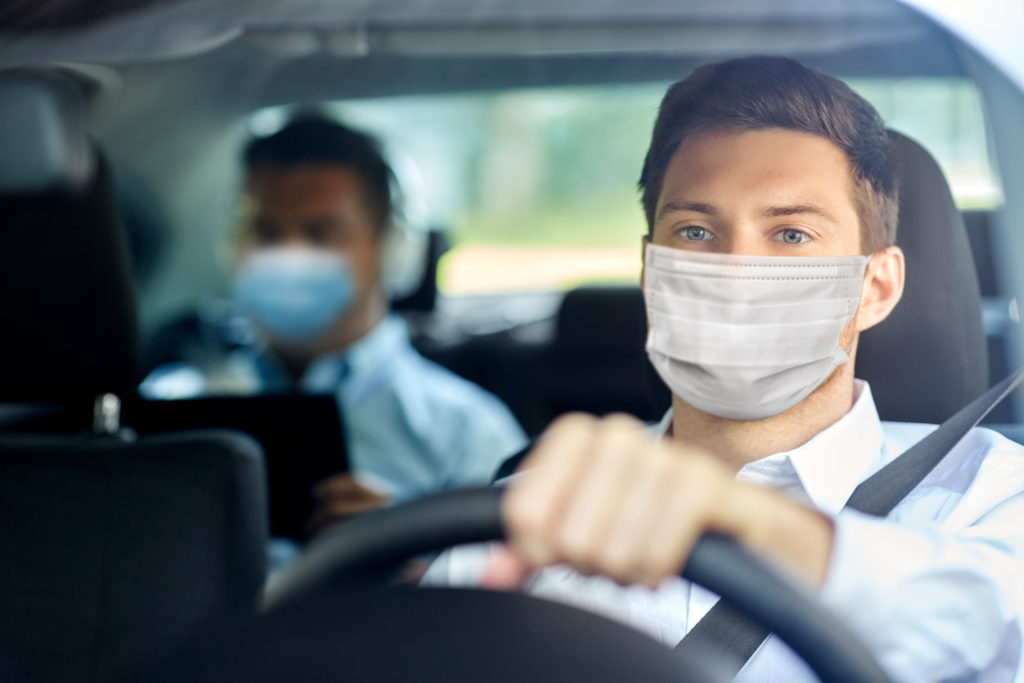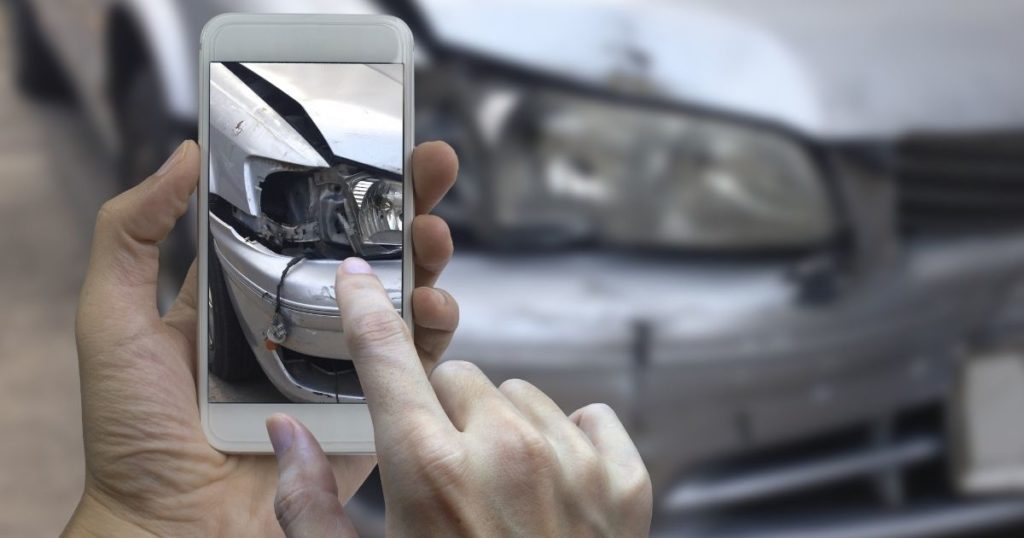Rideshare Accidents
Rideshare companies offer convenient services for many travelers. They support flexible employment opportunities for gig-work drivers in cities, towns, and other areas across the United States and in many other parts of the world. The advantages presented by these enterprises allow for great strides in many areas of the economy and society. However, rideshare services also come with downsides, such as an increase in car accidents.
Are Rideshare Services Causing More Fatal Car Accidents?

Although rideshare services are helpful and easily accessible, they do present dangers. In fact, the increase in collisions in this category has played a significant role in the overall uptick of car accidents. A study of trends between 1985 to 2010 indicates that car accident rates that had been on the decline for years started to pick up again at the same time that rideshare transportation was beginning to take off.
The study, conducted by the University of Chicago Booth School of Business, concluded that the introduction of rideshare services happened at the same time as a three percent annual increase in car accident fatalities, an upsurge of nearly 1,000 deaths per year. A look at the timeline of when ridesharing was introduced illustrated that cities that have rideshare services saw increased rates of major traffic and fatal accidents.
How Do App-Based Rideshare Companies Work?
Rideshare rides are alternatives to taxi and other transportation services. Customers of rideshare companies use a smartphone application to summon a ride, much like a traditional taxi service. The customer orders and pays for their one-way trip through the app, and the app notifies them when their rideshare driver is on the way to pick them up.
On the other side, the rideshare driver receives the ride request that was made by the customer, and if they accept the fare, they proceed to the pick-up location to give a ride to the customer who ordered the convenient service. Once the rideshare driver picks up the customer, they transport the passenger to their intended location. Once the passenger trip is complete, the rideshare driver will wait for another request for a ride. It is usually a fuss-free exchange, but that is not the case if an accident occurs during the service.
What Elements Complicate Rideshare Car Accidents?
Rideshare car accidents are complicated because there are many possible parties involved that might be held liable for damages suffered in the crash. More possible parties means more investigation, time, and evidence. For this reason, it is important to speak to a lawyer after a rideshare accident.
Normally, a person injured in a car accident would hold the at-fault driver accountable by filing a claim against that driver’s insurance. If the at-fault driver was working for a rideshare company at the time of the accident, there are other considerations that may affect liability, which in turn is likely to influence how much coverage is available to cover an injury claim.
What Should a Rideshare Passenger Do After a Collision?
As long as the immediate medical needs of any injured person are addressed, anyone who is involved in a serous car accident should take steps to preserve evidence that will help them prove what happened in the rideshare accident. This will go a long way in securing financial damages needed to pay for the costly outcomes of the incident, such as expensive medical bills.
People who become involved in a rideshare collision should collect evidence from the accident scene, including the identities and insurance information from both drivers, pictures of the cars, and physical contexts of anything that may have played a role in the crash, as well as witness statements. Any documentation and receipts of medical care should also be kept as evidence to support a claim for any injuries. Statements from doctors or medical records showing any ongoing recommended treatments are also useful for a personal injury case.
Both Uber and Lyft have accident reporting features on their apps. The apps also offer ways for passengers to report dangerous driving, such as drunk or drowsy driving. Neither feature needs to be used in order to qualify for an injury claim, but reporting the driver or the accident could serve as valuable proof during the insurance claims process or a legal case for damages.
How can a Lawyer Strengthen My Personal Injury Case?
A lawyer experienced in the complexities of rideshare accidents can explain which parties can be held liable, what kinds of compensation are available, and how best to collect and present evidence to strengthen a claim. An experienced car accident lawyer understands the rules that apply when working to secure damages in a rideshare collision case and has the necessary skills to apply them.

Rideshare accident cases are often more complicated than standard collision cases. When dealing with teams of lawyers representing a powerful and global corporation, the chance of being overwhelmed by the process can be daunting for an individual who may be still recovering from the accident itself. Having a lawyer handle the claim can allow the injured person to focus on their healing, knowing their claim is in the hands of a legal professional who understands the process and the importance of getting it right. A knowledgeable lawyer can work to ensure that the claim for damages is handled fairly and that the settlement offer meets the demands of the damages suffered by the claimant in the accident.
What Types of Damages can I Seek in a Rideshare Accident Case?
There are two types of damages that may be available for someone injured in a rideshare car accident, and these are divided into economic damages and non-economic damages. It is important to know the different types of available damages when pursing a legal case.
Economic damages are made up of losses that cost the claimant money, such as medical bills to pay for injuries suffered in the crash, lost income that the claimant was unable to earn while recovering from the accident, and even lost earning potential. Lost earning potential could result if the injuries prevented the claimant from returning to a lucrative employment situation that would have made for a more comfortable future.
Compensation for medical expenses should cover costs that have been incurred for doctor visits, tests, procedures, and treatments that have already been performed and billed, as well as expected expenditures for future care related to the injuries. A lawyer can be instrumental in calculating what compensation amount would be fair and just regarding lost earnings based on the claimant’s wage and age. Non-economic damages are those that are more difficult to calculate because they are more likely to be subjective. There is no bill that puts a price on what these types of damages cost the claimant. It can take significant effort and evidence to make a convincing case for non-economic damages. Non-economic damages can include pain and suffering, mental distress, loss of enjoyment, and loss of consortium, among other possible losses.
Who can be Held Liable in a Rideshare Car Accident Case?
When a rideshare car accidents occur, there could be many possible at-fault parties. The fault may lie with someone other than the rideshare driver, such as the other motorist in the crash, or the manufacturer of a faulty car part that caused the crash. However, even if the accident was clearly due to the rideshare driver’s negligent actions, the idea of assigning liability may not be cut and dry.
Depending on the circumstances of the crash, anyone who suffered losses in a rideshare accident should consider all possible parties who may bear some responsibility for what happened. If the rideshare driver was under the influence of alcohol at the time of the accident, an investigation might show that they had a history of drunk driving that should have been discovered in the process of vetting the driver. Even when the responsibility of the driver is clear, the rideshare company may try to deny liability.
Direct links to careless background checks or lax safety protocols can be clear signs that the rideshare company may be found liable for the accident. Since insurance limits come with claim limits, uncovering these links that implicate the rideshare company in the accident can be instrumental in securing a compensation amount that is suitable for the injuries.
How can the Rideshare Driver’s Status Affect the Viability of a Claim?
There has been much controversy about the arrangement that gig workers have with the companies that they work for. Rather than being considered employees of the company, drivers are labeled independent contractors who are working under an agreement with the rideshare company, which simply acts as the middleman bringing drivers and passengers together. This is the case for both Uber and Lyft.
Drivers for these companies use their own personal vehicles and operate under very different circumstances from those of official commercial drivers. Part of the business agreement between the top rideshare companies and their drivers stipulates that the rideshare drivers must carry their own insurance to provide coverage for themselves and their passengers in the event of a car accident.
The understanding is that the driver has the freedom to choose whether or not to respond to the ride requests that come through the app. Their personal insurance should cover anything that happens when they are in between official fares. Employment status of rideshare drivers has come up in many legal arguments that seek to prove that the arrangement is more of an employer-employee situation than it is claimed. If the contract distinction can be disputed in a particular case, the claimant may have a stronger case to seek damages from the company rather than the private insurance held by the driver.
How Do Insurance Arrangements Complicate Claims?
The two major rideshare companies set the standard in the industry and have similar insurance agreements with their drivers. Rideshare drivers are required by the companies they work for to retain an insurance policy that offers coverage for passengers who may become injured in a car accident that is caused by the driver.
However, a claim for an accident that occurs under specific circumstances should be covered by the overriding policy held by the rideshare company, which will most likely have a much higher limit. A higher limit translates into more favorable coverage for an injury claim.

In order for an accident claim to go through the company’s insurance, the crash must happen when the driver is actively on duty. The driver is considered on duty if they have a paying passenger in the vehicle that they are transporting or if they are in route to pick up a passenger that they have accepted and confirmed through the app.
Uber and Lyft cover these claims up to $1 million in damages. Any injury that resulted from the rideshare driver’s negligence should be covered under this policy as long as the driver’s rideshare app was on. This covers injuries suffered by passengers in the rideshare car, occupants of another vehicle, or pedestrians that were hurt as a result of the rideshare driver’s negligent actions. For anyone who was a passenger in a rideshare vehicle when another motorist caused an accident, the rideshare policy may still cover any injuries. If they at-fault driver was uninsured or underinsured, the rideshare policy should offer coverage for the driver and passengers who were in the rideshare vehicle.
How is a Rideshare Accident Claim Calculated?
It is not always a simple process to figure out how much an injury claim is worth; there are many factors. Factors include the severity of the injuries, the extensiveness of the recovery period, and whether or not a full recovery is expected or if the lasting effects of the injury will require long-term, ongoing care. For help with figuring out a correct and just compensation amount, the car accident victim should speak to a lawyer for legal advice.



